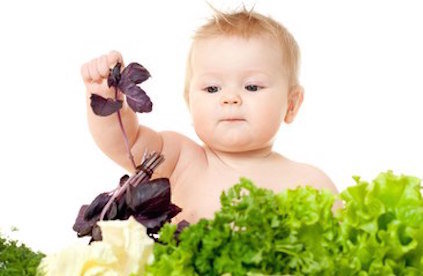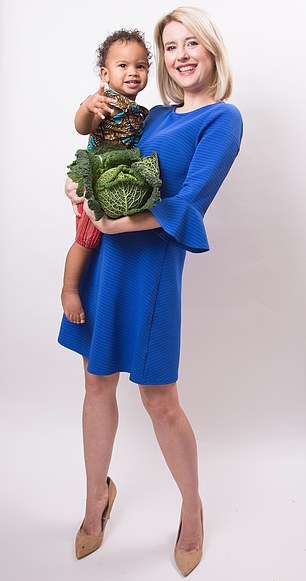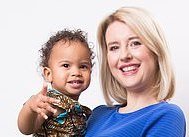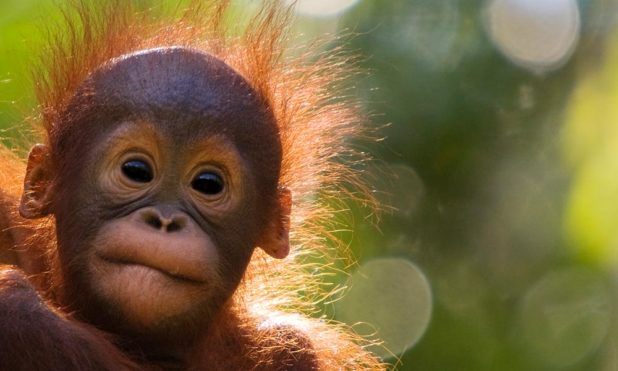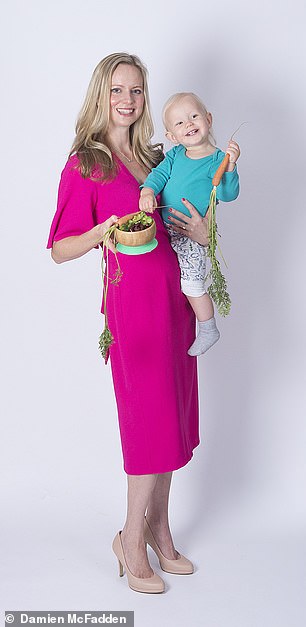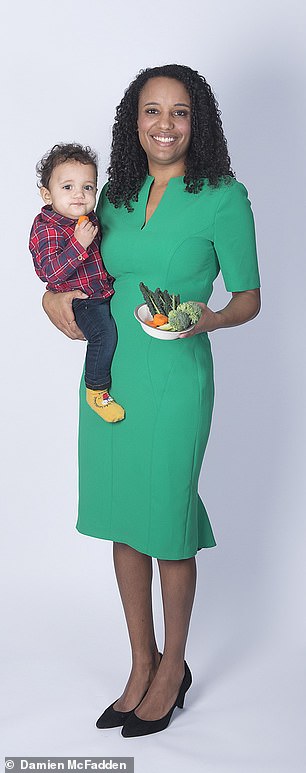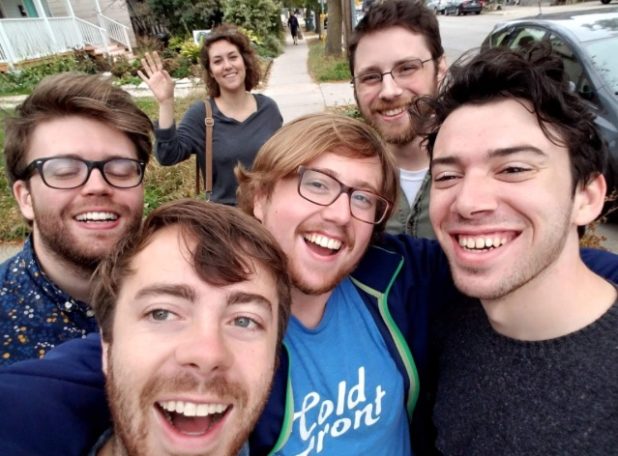Pomidor Quixote
Daily Stormer
March 6, 2019
Science and history don’t matter to vegan mothers. Veganism feels right, so it must be right. Right?
To the parents of fussy eaters, the idea of a child who begs for broccoli and happily tucks into a pile of beans, pulses and tofu sounds like an impossible dream. Surely, such a child does not exist?
Well, he does. One-year-old Dylan Bammeke’s favourite meal is dahl curry with rice or sweet potato mash, and you’ll never see him pulling a ‘yuck’ face when given a veggie stir-fry.
Dylan eats this way because it’s all he has ever known. He may not be old enough to pronounce the word ‘vegan’ — but he is one. Toddler staples such as chicken nuggets, fish fingers or boiled egg and soldiers have never made their way on to his plate.
Dylan’s mother, Layla, admits her decision to feed her son a plant-based diet has raised eyebrows. Is it morally right, or even healthy, to enforce such a strict eating regime on a growing child, many ask.
Layla, 39, says raising her baby to be vegan has been met with derision from some.
‘I’ve had people accuse me of child abuse, and had comments such as, “You should let him have the choice to eat meat,” and, “He won’t grow properly,”’ says Layla, a business studies student who’s been vegan since 2016.
Let’s pause there for a second.
Layla and Dylan
She’s a 39-year-old mother who has been eating a vegan diet since 2016. Her baby is one year old so she decided to feed him a vegan diet after she ate vegan for about two years, give or take.
Does that sound like a responsible thing to do?
She doesn’t know what the long-term effects of a vegan diet are. A couple of years are not enough to properly judge if a diet is sustainable long-term because a couple of years is not “long-term.” Your body stores all kinds of vitamins and minerals so you don’t become immediately deficient when you stop having access to them. For example, the average person could go years without ingesting B12 without developing a deficiency because our bodies store B12; your liver has a B12 reserve.
She lives in Woolwich, South-East London, with Dylan, 16 months, and her fiance Eddie, 50, a film director, who’s also vegan. Before weaning her son, Layla sought advice from her GP — and certainly her little boy is a picture of health, with sparkling eyes, glowing skin and weight and height just as they should be.
He looks like a mystery gender orangutan baby.
A study of veganism in children at University College London concluded that a lack of nutrients such as vitamin B12, calcium, zinc and high-quality protein (found in meat and dairy) can lead to malnutrition and ‘irreversible damage’ to their nervous systems.
Professor Mary Fewtrell warned: ‘It is difficult to ensure a healthy and balanced vegan diet in young infants. The risks of getting it wrong can include irreversible cognitive damage and, in the extreme, death.’
Paediatric dietitian Lucy Upton agrees that while a vegan diet shouldn’t be labelled good or bad, it requires very careful attention.
‘Children need lots of energy and very nutrient dense foods in order to grow, for bone and teeth accrual, and for their brains to develop.
‘A wholefood vegan diet is typically low in fat and high in fibre, and essentially low in calories, which has the potential to affect how much energy and nutrients children are able to consume.
‘When reviewing the diet of a vegan child, I scrutinise it to ensure it includes the nutrients which are essential for children — namely iron, calcium, vitamin B12, iodine, selenium, vitamin D and omega 3 fatty acids. They are harder to obtain from a vegan diet, so many youngsters require supplements.
‘Iron deficiency can also impact on children’s weight, appetite and energy, and increase the risk of coughs and colds.
‘Too little protein can lead to stunted growth, while too much fibre can cause children to feel full too quickly, stopping them getting enough food.’
Most vegans are skinny fat; they definitely lose weight on vegan diets, but it’s mainly muscle. People are known to use vegan diets to lose weight, but do you know of anyone that says “I want to gain some muscle so I’ll switch to a vegan diet now”?
Thirty-six-year-old Iida van der Byl-Knoefel, from Surrey, went vegan four years ago in a quest for better health after being diagnosed with inflammatory arthritis.
When her son Johannes was born in August 2017, she was resolute that he’d eventually be weaned onto a vegan diet — a decision that her non-vegan husband Fred, 36, a banker, supported.
She says other people’s concerns about them raising their son as a vegan are usually dismissed when they see 19-month-old Johannes.
‘When people see my gorgeous baby — how energetic he is and how much he loves his food — their reservations usually disappear.’
Iida van der Byl-Knoefel and Johannes
Contrary to popular myth, vegans can and do breastfeed their children, since there is no cruelty involved and a mother’s milk, unlike a cow’s, was intended for human babies. Johannes will be breastfed until he is two, meaning that Iida, who is the author of vegan cookbook A Kitchen Fairytale, can be confident her baby is getting the nutrients he needs.
‘I don’t give him supplements, as breast milk is so full of goodness,’ she says. ‘I also make sure his diet is varied to ensure his nutritional needs are met. For example, he has a green smoothie pretty much every morning. This contains leafy greens such as kale and spinach, as well as hemp seeds, barley grass powder, orange and banana.
Spinach and kale are high in oxalates, and oxalates are one of the most — if not the most — common causes of kidney stones due to oxalates binding with calcium and people usually having calcium in their urine. You don’t want that binding to happen inside your kidneys.
Although both spinach and kale also contain calcium, so in theory they should lose some of their dangerous oxalates, would you take that chance?
You can reduce the oxalate content of leafy greens by cooking them, but it’s not common to use cooked greens in green smoothies.
Our ancestors didn’t go out of their way to cook food because they felt like wasting time instead of eating the stuff raw.
‘He also regularly eats all colours of lentils, different types of beans, wholegrains, nuts and lots of fruit and veg. His weight is perfect for his age. He’s healthy, pink-cheeked and has a terrific appetite.’ Of course, at this age, controlling what Johannes eats is a doddle compared with when children start nursery and school.
The famous vegan “terrific appetite” is nothing but a symptom of malnutrition. Their bodies are constantly telling them they’re starving so they’re always eager to eat more and more because no matter how much they eat their body never gets enough.
But it’s not all plain sailing, as vegan mum Amy Venables found recently when her 16-month-old son, Bodhi, started being picky at mealtimes.
Amy Venables and her son (???) Bodhi
‘Although generally he eats a greater variety of foods than his non-vegan friends, there are times I’ve felt fraught because all he wants is pasta and bread,’ says Amy, 35, a marketing manager from Basingstoke who’s been vegan for six years.
His body is so malnourished he’s desperately looking for calories.
‘If he ever decides to eat meat, I’ll be disappointed but respectful. But I’ll never cook it in the house, because that’s against our family principles.
lol “cooking a part of an animal so my son can eat it is against our family principles.”
However, dietitian Lucy Upton points out that there’s a misleading perception that the vegan diet is super-healthy. ‘Data shows that a lot of people quote health as the reason why they become vegan and certainly it can be healthy,’ she says. ‘But there are also plenty of processed and high-calorie vegan foods on the market now, plus “accidental” vegan foods which would be unhealthy in large quantities, such as certain cookies, crisps and sweets.
‘It’s so important that parents become familiar with food labels and look for vegan-friendly foods that contain good amounts of protein and calcium, and are fortified with iron and vitamin B12.’
One vegan mum who’s an expert in this respect is Karris McCulloch, 33, who with her husband Scott, 36, founded TheVeganKind, an online vegan supermarket and monthly subscription box service. They live in Glasgow with their daughter Casey, seven, and son Tyler, two.
Karris McCulloch with Casey and Tyler
‘I was in the early days of being a vegan when Casey was a baby so fed her a mixture of breast milk and non-vegan formula, but at a year old we decided to wean her on to a totally vegan diet,’ recalls Karris.
‘We thoroughly researched what nutrients she’d need, and we did have a few queries from acquaintances about whether she’d get enough calcium or protein.
These vegans don’t realize how insane they are. Instead of doing all that lab experiment stuff with their kids she could just have cooked some meat and eggs for them a couple of times a week, just to be on the absolutely safe side.
You’d be surprised how much of a difference animal foods make, even in small quantities.
But for vegan parents, the ‘picky’ stage — which Tyler is now going through — can be particularly worrying. ‘It bothers me when he throws his dinner on the floor as I’m conscious that I want him to get all the nutrients he needs,’ says Karris. ‘I give supplements to both children as a back-up, and I would do even if they weren’t vegan.
Maybe try feeding him better food? At least give him a poached egg to soak his veggies in the yolk.
At nursery, Tyler has vegan alternatives at mealtimes such as bolognese made with soya mince. Casey takes a packed lunch of vegan sandwiches, fruit and crisps to school, because ‘other than beans on toast’ there are few options on the menu.
The practice of feeding soy to humans is insane and it has to stop.
That said… have you noticed what all of those vegan mothers have in common? They’re old, stupid, and haven’t been vegan for long.
Really, who has been vegan for long? Do you know of any long-term vegan? Someone who’s been vegan for at least 20 years?
What about someone who was raised vegan? Do you know of anyone that grew up eating only a vegan diet?
Twin sisters Nina and Randa from YouTube claim to be vegans from birth. They look way older than they actually are and they have the bodies of 11-year-old boys.
There aren’t many long-term vegans around because people usually just drop the diet after realizing their bodies are falling apart, and there are plenty of vegan horror stories in sv3rige’s YouTube channel.
You can imagine what these vegan babies will look like in the future.
